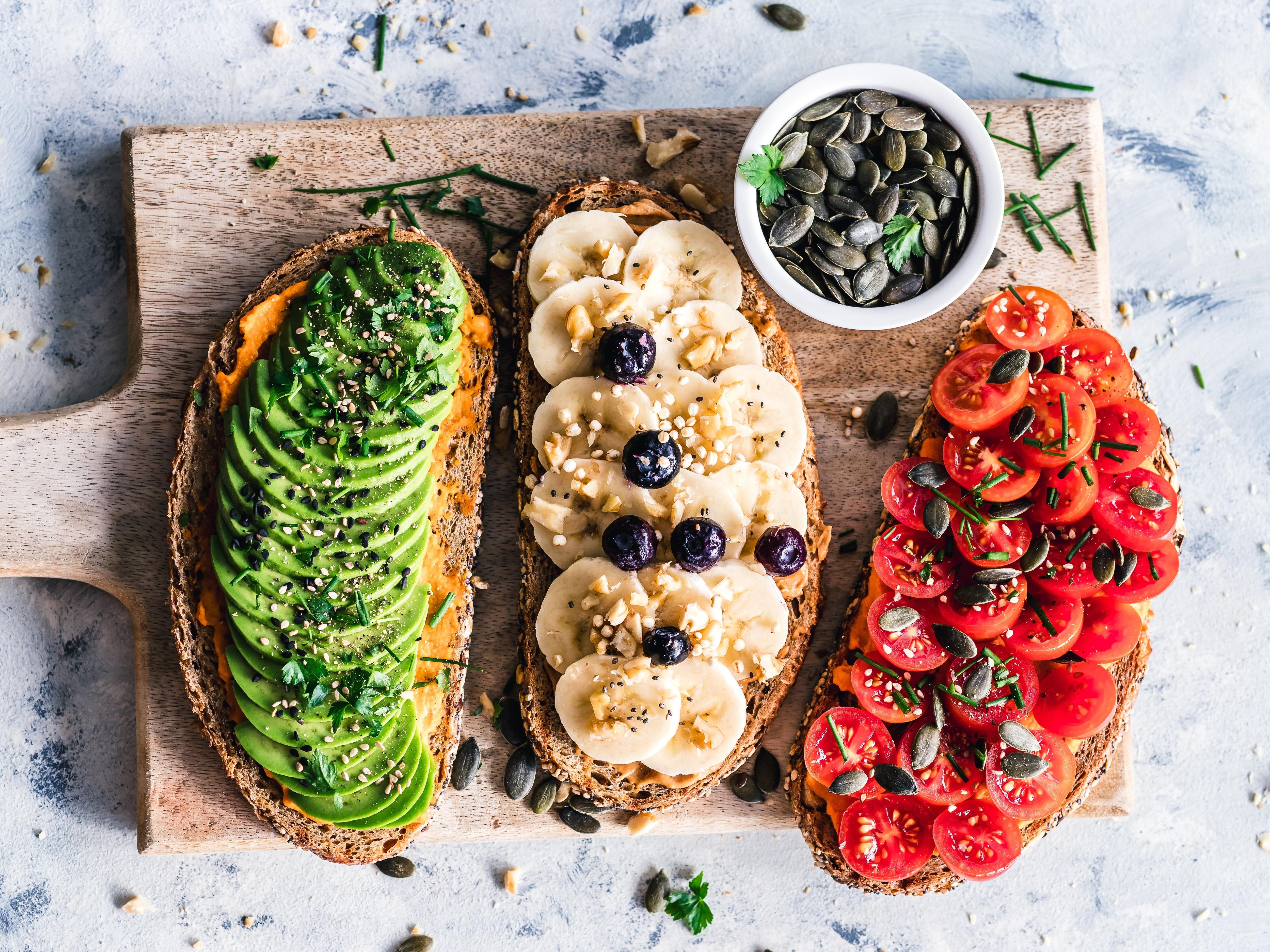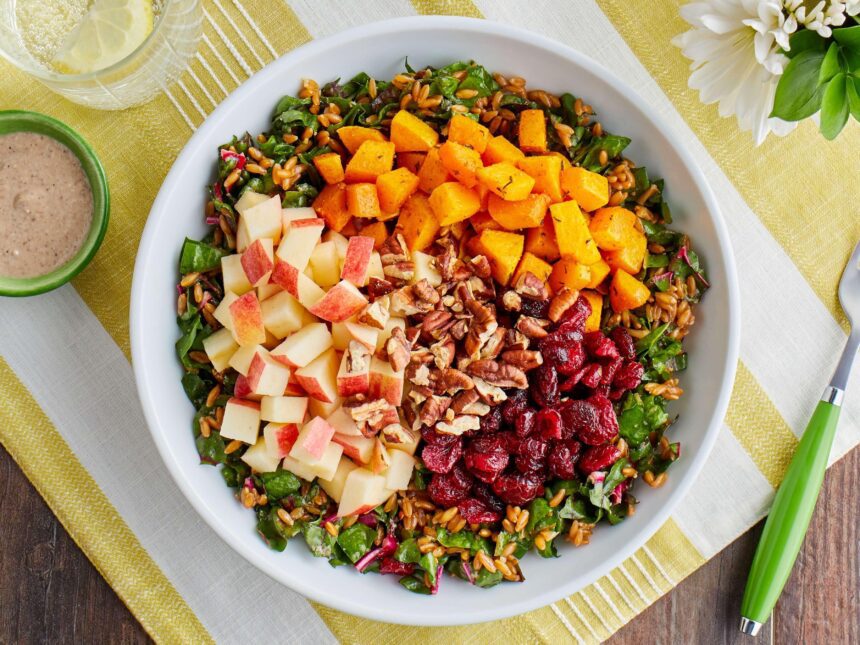In recent years, the vegan food movement has undergone a vibrant transformation, merging culinary creativity with a deeper understanding of sustainability and health. As more individuals gravitate toward plant-based diets, a fresh approach is emerging, reshaping perceptions and practices within the culinary landscape. This evolving paradigm not only emphasizes the benefits of a vegan lifestyle but also addresses pressing environmental concerns and public health issues. From innovative recipes that captivate the palate to a burgeoning market of plant-based products, the movement is expanding its reach and influence like never before. Join us as we explore the new wave of veganism and the exciting developments that promise to redefine the way we view and enjoy food.
Exploring Innovative Ingredients in Vegan Cuisine
Vegan cuisine is continually evolving, driven by the quest for innovative ingredients that not only satisfy the palate but also offer nutritional benefits. Ingredient diversity allows chefs and home cooks alike to transform traditional dishes into exciting vegan alternatives. Among these ingredients are jackfruit, which mimics pulled meat texture, and nutritional yeast, known for its cheesy flavor and rich B-vitamin content. Additionally, the increasing popularity of oat milk reflects a shift towards plant-based dairy substitutes that are creamy and nutritious. This focus on unique ingredients creates opportunities to explore flavors that challenge conventional cooking narratives.
Exploring these innovative ingredients enables a plethora of culinary possibilities. The versatility of aquafaba, the liquid from canned chickpeas, has opened doors for vegan baking, allowing traditional recipes to be modified without sacrificing texture or taste. Similarly, miso adds depth to sauces and dressings, imbuing dishes with umami complexity. The adoption of superfoods like spirulina and chia seeds enriches meals with additional protein and omega-3 fatty acids, appealing to health-conscious consumers. As more people embrace a plant-based lifestyle, the thoughtful integration of these novel ingredients not only elevates dishes but also promotes sustainability in food production.

Redefining Comfort Foods: Vegan Twists on Classic Dishes
In today’s culinary landscape, the modern vegan twist on traditional comfort foods offers a remarkable opportunity to embrace flavors while catering to dietary preferences. Classic dishes, once dominated by animal products, are now being reimagined with the vibrant hues and textures of plant-based ingredients. Consider the following options that showcase this transformation:
- Cauliflower Buffalo Wings: A spicy, tangy alternative to chicken, these crispy bites retain the essence of classic buffalo wings, drizzled in a zesty vegan ranch.
- Chickpea “Tuna” Salad: Creamy and satisfying, this dish captures the essence of tuna salad but replaces fish with protein-rich chickpeas and a dollop of vegan mayo.
- Sweet Potato Mac and Cheese: A cheesy, decadent concoction that uses cashews and sweet potatoes to deliver a rich, creamy flavor without dairy.
Each of these creations not only satisfies cravings but also embraces the health-conscious trend driving the vegan movement. By utilizing wholesome ingredients without sacrificing taste, these dishes exemplify a balanced approach that can appeal to both vegans and non-vegans alike. A quick comparison of traditional versus vegan adaptations can illustrate the benefits:
| Traditional Dish | Vegan Alternative |
|---|---|
| Mac and Cheese | Sweet Potato Mac and Cheese |
| Chicken Alfredo | Cauliflower Alfredo |
| Tuna Salad | Chickpea “Tuna” Salad |
Sustainability in the Kitchen: Eco-Friendly Practices for Vegans
Embracing eco-friendly practices in the kitchen can significantly enhance the vegan lifestyle while promoting sustainability. Start by opting for locally sourced ingredients to minimize carbon footprints associated with transportation. Support local farmers’ markets or community-supported agriculture (CSA) programs. Additionally, prioritize organic products to reduce exposure to harmful pesticides, which not only benefits your health but also the health of the planet. Consider plant-based meal prepping to reduce food waste, which can be a major contributor to greenhouse gases. By planning meals in advance, you can efficiently use ingredients and avoid the last-minute purchase of perishable items.
Another key aspect of sustainable cooking is the smart use of kitchen appliances and cooking methods. Choose energy-efficient appliances that consume less power while preparing meals. Using a pressure cooker or slow cooker can save electricity compared to conventional methods. Incorporate more raw meals y no-cook recipes into your diet to cut down on cooking energy altogether. Create a composting system for any food scraps and garden waste, turning what would be trash into nutrient-rich soil for future plantings. With these strategies, your kitchen can become a hub of eco-consciousness, aligning perfectly with the vegan ethos of compassion and sustainability.
Building Community: The Role of Social Connections in the Vegan Movement
Building a vibrant community around veganism requires fostering social connections that extend beyond individual dietary choices. By creating welcoming environments, people are encouraged to share their stories and experiences, making the journey more relatable and fulfilling. Key aspects of community-building in this movement include:
- Shared Experiences: Organizing local meetups or cooking classes to exchange recipes and culinary skills.
- Support Networks: Establishing online and offline forums where questions can be asked and advice given on transitioning to a vegan lifestyle.
- Collaborative Initiatives: Partnering with local businesses to promote plant-based products and sustainable practices.
A sense of belonging not only enhances individual commitment but also amplifies the collective impact of the vegan movement. Social connections can lead to advocacy and awareness-building, forging strong ties that motivate community members to engage further. Notable strategies for strengthening these bonds include:
- Volunteer Opportunities: Participating together in community outreach programs that promote animal welfare and environmental sustainability.
- Educational Events: Hosting workshops and speakers to inform and empower both seasoned vegans and newcomers alike.
- Social Media Engagement: Utilizing platforms to share success stories, recipes, and motivation, fostering a sense of global community.
Conclusión
As the vegan food movement continues to evolve, embracing innovation and diversity, it becomes clear that this culinary revolution is not just a trend but a reflection of shifting values and lifestyles. By integrating fresh ingredients, bold flavors, and sustainable practices, the movement invites everyone-regardless of dietary preferences-to explore, taste, and celebrate a world where plant-based eating is both accessible and exciting. As we venture into this new chapter, let us acknowledge the creativity and passion of those leading the charge, knowing that a vibrant, compassionate future lies ahead in every bite. Embrace the journey, and discover the delicious possibilities that await in this fresh approach to vegan cuisine.












